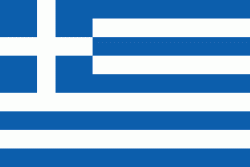Stalis (Stalís)
Stalida (Greek: Σταλίδα, older form Stalis) is a village that lies between Malia and Hersonissos on the north coast of Crete, Greece. The name derives from the Greek verb stalizo, which means 'stop for a rest' as this was a location where shepherds and farms rested in between villages. It is a lively resort, attracting tourists from many European countries. It has a long, sandy beach and a variety of shops, bars and tavernas. From Stalis, the Bulgarian trail leads to Mochos village, built by the captive Bulgarians during WWII. In the village's main square, one finds the Byzantine church of St. Ioannis (St. John) dating back to 1600. Popular with families, it is 30 km from Nikos Kazantsakis airport in Heraklion.
Quieter than the neighbouring resorts of Malia and Hersonissos, Stalis has a more relaxed atmosphere and still has a wide array of bars and restaurants. The resort is popular with a mix of nationalities.
Quieter than the neighbouring resorts of Malia and Hersonissos, Stalis has a more relaxed atmosphere and still has a wide array of bars and restaurants. The resort is popular with a mix of nationalities.
Map - Stalis (Stalís)
Map
Country - Greece
 |
 |
| Flag of Greece | |
Greece is considered the cradle of Western civilization, being the birthplace of democracy, Western philosophy, Western literature, historiography, political science, major scientific and mathematical principles, theatre and the Olympic Games. From the eighth century BC, the Greeks were organised into various independent city-states, known as poleis (singular polis), which spanned the Mediterranean and the Black Sea. Philip II of Macedon united most of present-day Greece in the fourth century BC, with his son Alexander the Great rapidly conquering much of the ancient world, from the eastern Mediterranean to the North Western parts of India. The subsequent Hellenistic period saw the height of Greek culture and influence in antiquity. Greece was annexed by Rome in the second century BC, becoming an integral part of the Roman Empire and its continuation, the Byzantine Empire, which was culturally and linguistically predominantly Greek.
Currency / Language
| ISO | Currency | Symbol | Significant figures |
|---|---|---|---|
| EUR | Euro | € | 2 |
| ISO | Language |
|---|---|
| EN | English language |
| FR | French language |
| EL | Greek language |















